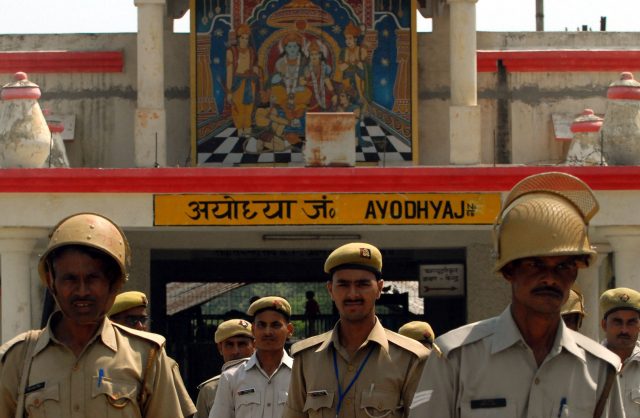
It has become a fashion in some elite Indian circles to bash Hinduism or issues related to it. It has also been taboo in these same intellectual circles to discuss what I think is a very reasonable request — we should have a Ram temple in Ayodhya. Elites, particularly in the English media, have bullied almost all voices that desire a temple at the sacred site into silence.
Hence, just to be clear I would like to state this: peacefully, but definitely, I support the construction of a beautiful Ram temple in Ayodhya. It is frankly ridiculous that we have to beg to restore a temple at one of Hinduism’s greatest sites.
Of course, something needs to be clarified here. Violence of any form, including the kind that happened in 1992, cannot be supported. It was wrong, illegal, unfortunate and should never happen again.
However, this does not take away the reasonableness of the request to restore a temple in one of the holiest sites of Hindu religion. This article seeks to make a case for a temple and debunk the various theories that have prevented the same from happening for all these years.
The first argument against the temple is ‘why disturb the status quo?’ Its proponents say there is an issue, but it is dormant. So why disturb it and risk destroying the peace? Well, there is no reason why peace should be disturbed in the first place.
I think the Muslim community, or the various leaders that claim to represent it, should give its blessing to the temple in any case. This is no ordinary site. As per Hindu faith, it is the birthplace of Lord Rama, one of the most worshipped gods in the religion.
Diwali is India’s biggest festival. Thousands of mosques stand on erstwhile temples in India, courtesy Mughal rulers. Nobody is asking to restore those. But this is Lord Rama’s birthplace, replaced by simply one more mosque. That mosque can be shifted. The holy site of Lord Rama’s birthplace is a matter of centuries of faith. We can’t shift that.
The mosque can, and a grander one can be made nearby, or even right next door. Why wouldn’t the Muslim community accommodate such a reasonable appeal? Is it because some of their self-styled leaders are politically instigated not to do so? I am sure the general Muslim population of this country will approve of such a request. We just need to approach them directly. In the age of social media, we can.
‘Build a hospital instead’ is the second argument made against building the temple. We should make hospitals, yes, but it doesn’t have to be at the same site! Hospitals should be located based on criteria like where do people need them most. They can also be made on any piece of land. Why on such a holy site? Frankly, why can’t we make a temple at the site as well as a great hospital somewhere else?
The third argument against the temple is the modern ‘But God is everywhere, so why here?’ Related to this is: ‘But what is the proof Lord Rama was born here?’ Well, God is everywhere. But we still need places of worship. So that when we go there, we can focus on God and God alone.
As far as proof of Lord Rama’s birth goes, there is none. But we do have proof that this site has been known as the birthplace of Lord Rama for centuries, and excavations have shown that there was a temple here before the mosque.
India is a nation that respects all religions. To prove that, sometimes we tend to become extra sensitive to issues related to minority religions, but ignore any issues the majority religion may have.
The Ram temple is just one of them. Previous governments, particularly, had a policy of appeasement for the Muslim community, which took things to the extent that even a reasonable request was made to look like a form of Hindu bullying.
This temple can be a symbol of understanding between the two dominant religious communities of India. Restoring one temple because of the unique nature of the site and shifting a mosque to a nearby location (and making it grander) does not tarnish the glory of Islam in any manner.
In fact, the surge in tourism it will create in Ayodhya when this project is complete will bring jobs for both Hindus and Muslims.
The only thing we have to bear in mind is keeping a lid on any form of violence or communal incitement this project may create. Today, in the age of better digital communication, the risks are minimal.
This is a request from the Hindu community at large to the Muslim community at large, the elites and the intellectuals — let us have our temple. Bless its restoration and the building of a grander mosque nearby, so that we can, peacefully, create one of the greatest sites of religion and cooperation in the whole world.
By Chetan Bhagat
Courtesy: Times of India














